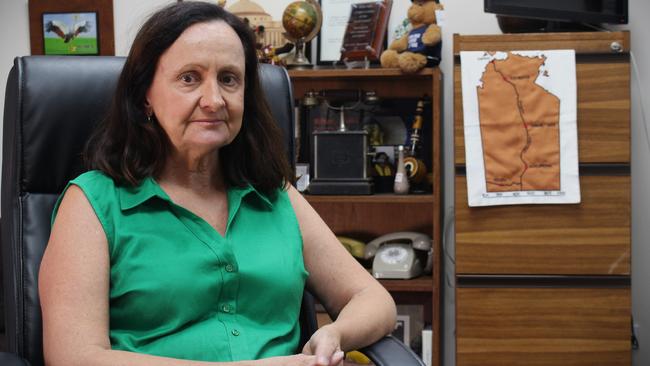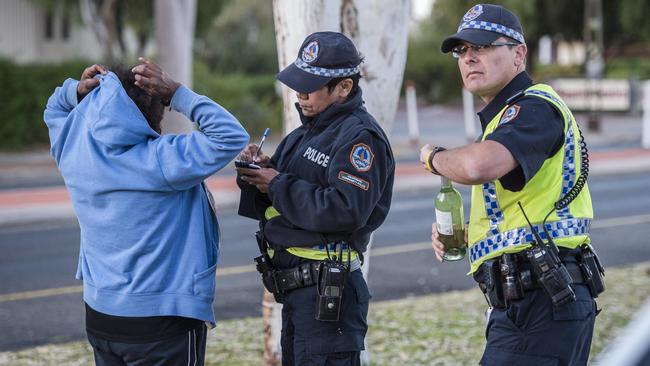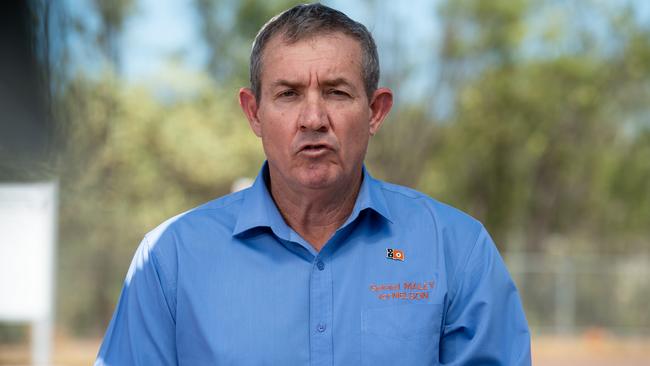Liquor Legislation Amendment Bill passes NT parliament: Bottleshops to ask where alcohol will be consumed
Territorians refusing to leave a licensed venue could be slapped with an $880 fine, and those buying grog be asked where they plan to drink it. Here’s why one MLA supported the reforms, despite calling them inherently racist.
Northern Territory
Don't miss out on the headlines from Northern Territory. Followed categories will be added to My News.
A Northern Territory politician has thrown her support behind liquor reforms despite calling them ‘racist by nature’ – something she says both sides of NT politics have long accepted.
The Liquor Legislation Amendment Bill passed through parliament on Thursday, requiring licensees selling takeaway alcohol across the Territory to check customers have a “legitimate” place to drink.
Central Australians have been subjected to such scrutiny for years, and Araluen MLA Robyn Lambley said the “extremely controversial” practice led to racial profiling of Aboriginal people.
Despite this, it was one she supported.
“With the practice of asking people where they intend to drink alcohol, invariably it is Aboriginal customers who will have difficulty answering that question and probably face the prospect of being refused the sale of alcohol,” Ms Lambley told Parliament.
“It racially profiles Aboriginal people by its sheer nature.

“It is 99.9 per cent Aboriginal people who are affected by alcohol bans in Central Australia, in town camps and communities, but it is imperative that this question be asked at the point of sale and that people are denied the sale of alcohol if they do not have anywhere to drink it.
“It is hard to implement, and it puts pressure on bottle shop attendees, the people selling alcohol, but it works.
“The fact it is racist by its nature is something both sides of the Chamber have accepted for a long time.”

The Liquor Bill also includes a five-fold increase in penalties for Territorians refusing to leave a venue: going from $176 to a $880 fine.
In an attempt to reduce public drinking, ex-officio officers, such as Transit Safety Officers, have been given authority to stop, search, and seize containers of alcohol.
The CLP supported the liquor reforms but said it was “too little, too late”.
Deputy Opposition Leader Gerard Maley said the Bill was an admission that Labor’s 2017 alcohol policy review, and subsequent 2019 Liquor Act, had been “a comprehensive failure”.

“Seven years since the review in 2017, this Bill has been introduced to address the shortcoming of the previous Bill, once again reflecting the reactionary behaviour of this Labor government,” Mr Maley told parliament.
“The Labor government does not have a plan and is hopping from crisis to crisis, unlike the CLP, which has a strong plan of action – the CLP will take back control of our streets, rebuild the reputation and grow our economy.”
Alcohol Policy Minister Brent Potter said reducing crime and anti-social behaviour was “the number one priority” of the government.
“Alcohol is one of the Territory’s biggest social challenges and the Lawler government will continue to make practical changes to prevent alcohol-related crime and anti-social behaviour,” he said.
“We are working on and delivering common sense measures to improve community safety which include expanding the banned drinker register, equipping security guards with OC spray, investing $570m more into our police and now strengthening the Liquor Act.”





